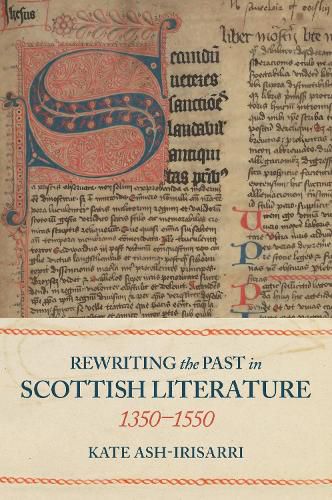Readings Newsletter
Become a Readings Member to make your shopping experience even easier.
Sign in or sign up for free!
You’re not far away from qualifying for FREE standard shipping within Australia
You’ve qualified for FREE standard shipping within Australia
The cart is loading…






Considers how Anglo-Scottish conflict was memorialised, reimagined and embedded by later writers.
The Anglo-Scottish Wars of Independence are often treated in historical and poetical works produced in Scotland between the fourteenth and sixteenth century, from chronicles and hagiographical romances to advisory and commemorative poems. Through an examination of such texts, this book explores how late-medieval writers drew on the memory of the wars to articulate a collective identity; and how literary and historical frameworks were deeply influenced by shifting Anglo-Scottish relations. It covers a range of topics: how borders - textual, geographic, and cultural - became a focus for articulations of national memory; the utilisation of origin myths and royal genealogy; anxieties around failures of memory or deliberate acts of forgetting; and the impact of the Battle of Flodden (1513) on writing about Scottish nationhood. Dealing in particular with Bower's Scotichronicon, Hary's Wallace, The Complaynt of Scotland and Lyndsay's Dreme, this study argues that these writers drew on understandings of the arts of memory to shape selective, and collective, recollections of the past as a response to contemporary concerns, providing an emotive memorialisation of Scotland's history.
$9.00 standard shipping within Australia
FREE standard shipping within Australia for orders over $100.00
Express & International shipping calculated at checkout
Considers how Anglo-Scottish conflict was memorialised, reimagined and embedded by later writers.
The Anglo-Scottish Wars of Independence are often treated in historical and poetical works produced in Scotland between the fourteenth and sixteenth century, from chronicles and hagiographical romances to advisory and commemorative poems. Through an examination of such texts, this book explores how late-medieval writers drew on the memory of the wars to articulate a collective identity; and how literary and historical frameworks were deeply influenced by shifting Anglo-Scottish relations. It covers a range of topics: how borders - textual, geographic, and cultural - became a focus for articulations of national memory; the utilisation of origin myths and royal genealogy; anxieties around failures of memory or deliberate acts of forgetting; and the impact of the Battle of Flodden (1513) on writing about Scottish nationhood. Dealing in particular with Bower's Scotichronicon, Hary's Wallace, The Complaynt of Scotland and Lyndsay's Dreme, this study argues that these writers drew on understandings of the arts of memory to shape selective, and collective, recollections of the past as a response to contemporary concerns, providing an emotive memorialisation of Scotland's history.